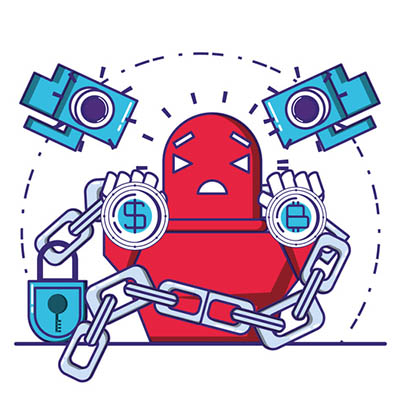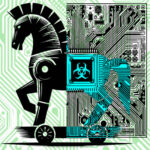Will Your Online Privacy Be Better Using Blockchain?
 Blockchain has been an especially hot topic as of late, especially with the recent meteoric rise in the value of most cryptocurrencies. With all the focus directed to Bitcoin, it is easy to forget that the blockchain has other uses – uses that are geared toward increased cybersecurity, transparency, and privacy.
Blockchain has been an especially hot topic as of late, especially with the recent meteoric rise in the value of most cryptocurrencies. With all the focus directed to Bitcoin, it is easy to forget that the blockchain has other uses – uses that are geared toward increased cybersecurity, transparency, and privacy.
The Sovrin Network
However, many companies haven’t forgotten, and have come together to form a nonprofit organization dedicated to creating a network that will enable far more secure online exchanges of information and credentials. This association, called the Sovrin Foundation, is working to create something called the Sovrin Network using blockchain technology.
This network would allow each user to maintain a digital wallet containing identification credentials, banking and other financial credentials, and even employment credentials or a company ID.
Their Mission
The Sovrin Foundation was founded in response to what many companies see as a fundamental flaw in the infrastructure of the Internet. After a year during which 2.9 billion records were compromised in assorted data breaches and cyberattacks, these companies have banded together to create an improved system for confirming one’s identity online that also limits the opportunity for identity-based cybercrimes.
In short, the intention is to create a standardized means of establishing digital credentials, as well as a method of verifying them as they are used. The Sovrin Foundation is leveraging blockchain technology in order to do so.
How Will It Work for the End User?
Of course, there is always the concern that people will be resistant to change, despite the benefits that this change will bring them. Furthermore, it isn’t very likely that the average layperson is suddenly going to come to the conclusion that they need to download an app that provides them with a secure online identity wallet.
That’s why organizations, like financial institutions and businesses, will be able to access these capabilities through QR codes and other, similar means of identification.
Using the blockchain, different institutions could securely contact one another in seeking out information about you, and the minimal amount of information needed to satisfy the inquiry would be shared. For example, if a user was trying to take out a bank loan and both the financial institution and their employer were a part of the blockchain network, the employer could confirm that the user meets the minimum income requirement for the loan without actually sharing the salary of the user.
In this way, the Sovrin Network would put the power to control their information back in the hands of the user.
But What If I Lose My Phone?
Let’s face it, you wouldn’t want to lose your actual wallet, never mind one that contains your entire digital identity – so what should you do if your phone is misplaced or stolen with credentials from the Sovrin Network on it?
The same thing that you should do if the same happened to your actual wallet – cancel your credentials and have new ones issued.
Is This Approach Really Better?
In so many words, yes. As a society, we are increasingly reliant on data and information to ensure our own security, and proceed with daily business as usual. Any means we have to make that security more reliable is something that we should consider.
What do you think about all this? Share your thoughts in the comments!






